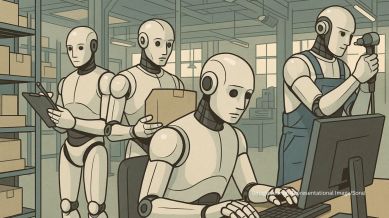AI could cause ‘99% unemployment by 2030’, warns computer science professor
Yampolskiy believes artificial general intelligence (AGI), machines that can match human intelligence, could be here as early as 2027.

Roman Yampolskiy, a computer science professor at the University of Louisville and a prominent voice in AI safety, has warned that artificial general intelligence (AGI) could arrive as early as 2027—triggering mass job losses within just a few years.
Speaking on The Diary of a CEO podcast, Yampolskiy said: “First, anything on a computer will be automated. And next, humanoid robots are maybe five years behind. So, in five years, all the physical labour can also be automated.”
monthly limit of free stories.
with an Express account.
He predicts a dramatic upheaval of the global workforce by 2030. “We’re looking at a world where we have levels of unemployment we’ve never seen before. Not talking about 10 per cent unemployment, which is scary, but 99 per cent,” he said.
Yampolskiy suggested that the only roles likely to survive will be those where people specifically want a human touch. The professor argues that almost every profession, whether behind a desk, behind the wheel, or even in classrooms and studios, could be taken over by AI systems trained on massive datasets.
Watch the interview:
People, he said, consistently underestimate this. “I ask my Uber driver, ‘Are you worried about self-driving cars?’ And they go, ‘No, no one can do what I do.’ Professors say the same. But you understand it’s ridiculous.”
And it won’t just be knowledge work. By the end of the decade, he expects humanoid robots to be advanced enough to cook, repair, and even take on trades like plumbing, jobs often assumed to be safe from automation. “After this changeover, our world will look remarkably different,” he said.
The challenge, Yampolskiy pointed out, won’t only be economic. While AI could generate immense “free wealth” by producing goods and services without human labor, possibly paving the way for solutions like universal basic income, the deeper problem will be psychological. For many, work is more than a paycheck; it’s tied to purpose and identity. Losing that anchor, he warns, could leave people adrift. “The hard problem is what do you do with all that free time? For a lot of people, their jobs are what gives them meaning in their life. So they would be kind of lost.”